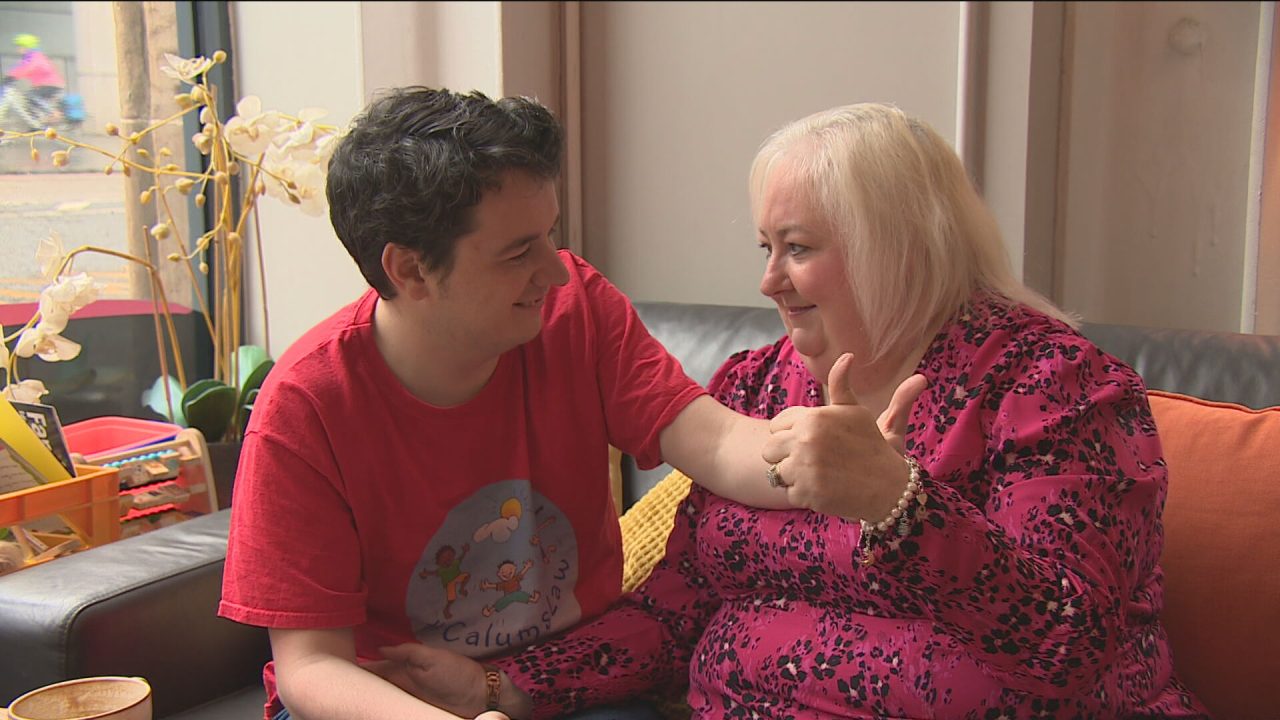A mother whose disabled son was physically restrained at a special school hopes a proposed law set up in his name will help protect vulnerable children.
Calum Morrison, who is 24, has epilepsy, autism and learning difficulties.
When he was 11 years old, he was forcefully restrained while at school, and his mother Beth Morrison, says he has been left traumatised more than a decade later.
She has been campaigning since 2010 and wants to make the current statutory guidance into law, with mandatory recording and reporting of all incidents.
Restraint involves holding a child or young person to stop them from moving, while seclusion means shutting them in a room or safe space alone.
Ms Morrison, who lives with Calum in Monifieth, Angus, is also calling for all teachers, support teachers and auxiliary staff to be provided with mandatory training in how to de-escalate difficult situations so physical restraint can be avoided as much as possible.
She recalled Calum coming home covered in bruises after being restrained on the ground by four adults.

She told STV News: “He came home that day from school collapsed in my arms. He said ‘no school mummy, I dizzy, teacher hurt.
“Every day he talks about it. He went to that school because he needed extra love and care and he didn’t get that.
“We’ve got to protect these children in law. I know it’s really hard for staff. I know they don’t get the support and resources, training and expertise. What are they supposed to do?
“All they know is a control and management approach. That’s hurting and traumatising. That’s not compassion or love.”
Ms Morrison said her research found 1,700 families with children who have been subjected to restraint.
She said 80% are autistic and that children with learning disabilities are “disproportionately affected.”
“Our children have the least power. They don’t have a voice,” she said. “We need to get back to love and caring for them.”
Ms Morrison is being supported by Enable Scotland, the country’s largest charity for people who have learning disabilities, in her efforts to establish Calum’s Law.
Heather Gilchrist is a community facilitator at Enable Scotland.
She said: “I hear so many stories of people from my members and they are telling me it’s really common. I hear it every day in my job and it’s hard to hear sometimes.
“I’ve heard a lot about what happened with Calum and though I’ve not seen it face to face, from what Beth told me it was a traumatic experience.
“So many teachers have been let down and the children are let down as well.
“It needs to be law. Too many people in schools too many people getting away with it and something needs to change.”

Labour MSP Daniel Johnson, who supports the Bill, said physical restraint should be an “absolute last resort.”
“What we don’t have is robust guidance on a statutory basis that regulates this, nor do we have consistent reporting and data capture. My Bill is about putting that right,” he said.
“Just hearing the battle the parents had to go through, how big a problem it was. As someone with ADHD, I felt I had to do something about it.
“We need clarity to improve the standards of local authorities and provide support to teachers in the classroom.”
But Scotland’s largest teaching union opposes the bill and said it would put both teachers and young people at risk.
Andrea Bradley from Education Institute Scotland said the government should instead invest in additional support needs staff in classrooms, which she described as “chronically underfunded.”
She said: “It’s absolutely essential that we record when young people have had distressed behaviour in schools, which I’d like to believe is happening already, but compulsory training around restraint is something that we absolutely oppose.
“We believe it will put teachers at risk and young people at risk, particularly when we consider majority of the teaching profession in Scotland is female.
“Are we really asking a relatively average sized woman be responsible for restraining a 16-year-old boy in a context that is really challenging? That seems to us absurd and really quite dangerous.”
The consultation for the Restraint and Seclusion (Prevention in Schools) (Scotland) Bill ends on Friday, September 29.
Follow STV News on WhatsApp
Scan the QR code on your mobile device for all the latest news from around the country
























